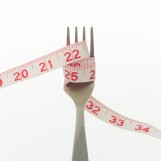 So yesterday we heard from some lightweight rowers about their quest to stay strong and stay trim. But what about the rest of us? Let’s face it; in the real world, most of us aren’t lightweight and most of us have to devote large amounts of our time to jobs and families. But wait! All is not lost. Can you lose weight and still train hard? I’ve spoken to two club rowers whose answer is a defiant “yes”.
So yesterday we heard from some lightweight rowers about their quest to stay strong and stay trim. But what about the rest of us? Let’s face it; in the real world, most of us aren’t lightweight and most of us have to devote large amounts of our time to jobs and families. But wait! All is not lost. Can you lose weight and still train hard? I’ve spoken to two club rowers whose answer is a defiant “yes”.
Alison Brighton, Runcorn Rowing Club
Alison is a single sculler who has managed to lose an impressive 10% of her body weight whilst still hitting her rowing targets. Here’s how she did it:
“I had put 10kg back on after losing a lot of weight through the first part of my NQT year – I was up to about 82 or 83 kg, which is scary being female and also a problem when your boat is a 70kg boat.
“After rigging it really, really high so I could tap down over my quads, and changing my coach, my weight came down through volume – hours and hours and hours of steady state from about November through to March, working within a heart rate range which was set from my resting HR and a maximum from racing or a 2k (forget which).
“I was doing weights etc. as well, but very little on the erg thanks to a dodgy back and the ‘magic’ formula of 1-2 sessions a week of about 10 being anything over ‘steady’. I believe this is closer to the ratio that GB squad do – masses of steady state relative to higher rating work (and that can mean 24+ apparently!)
“Foodwise – I was eating normal (large meals) plus making sure I ate/ drank something for recovery straight after training. I got fed up of the sight of large piles of pasta and feeling like I couldn’t eat enough to get through it.
“I was down to 74kg ish for Henley Women’s Regatta, although I wanted to get down to 72 really.
“This year, I’ve done much less steady state, due to change in coaching emphasis and being much further away from my club. Result: back up to about 78kg before I had a stomach bug. I’m about 76kg now (in reach of ‘race’ weight)
“But, really, I didn’t think much about food, other than whether it would make me feel sick before training (scrambled egg, tuna, anything with onion) and whether I had eaten enough.
“Once I decide if I’m actually in any state to race this season, after whatever last race is, going to go back to steady state, and make sure I get the miles in. It’s what works for me, for fitness, for technique, confidence in my boat and of course being lighter (am never going to be light!)”
Next up is my very lovely friend:
Julia Oliva, ladies’ vice-Captain, Monmouth RC
Some say she is the power behind the Olympic throne, and that Lord Coe leaves love-lorn messages on her voicemail. All we know is she’s called the Jools.
Jools took a more diet-based approach to losing weight and has lost a staggering amount of weight since November 2011. I’ve seen her on the gym and on the water and can vouch for the fact that she has lost nothing in energy. Here’s what she told me:
“S’easy! For lunch and dinner, fill a plate with gorgeous leaves, rocket, tasty herbs, etc., top with a low cal dressing and find a small gap on the same plate to put whatever you fancy in the high protein/quality carb/low fat range. My favourites are salmon fillet topped with red pesto, chicken breast with green pesto. Go easy on the trash carbs and ‘up’ the protein – for satiation – I’m convinced that protein makes you feel fuller longer. When I say fill your plate with veggies – I mean fill your plate!
“I’ve lost 20 lbs since November and never really felt hungry.
“Drink loadsa water.
“Weigh yourself daily – yeah I know that the diet sheets say once a week, but there’s plenty of research out there that shows that daily weighers have more success at losing weight and keeping it off.



